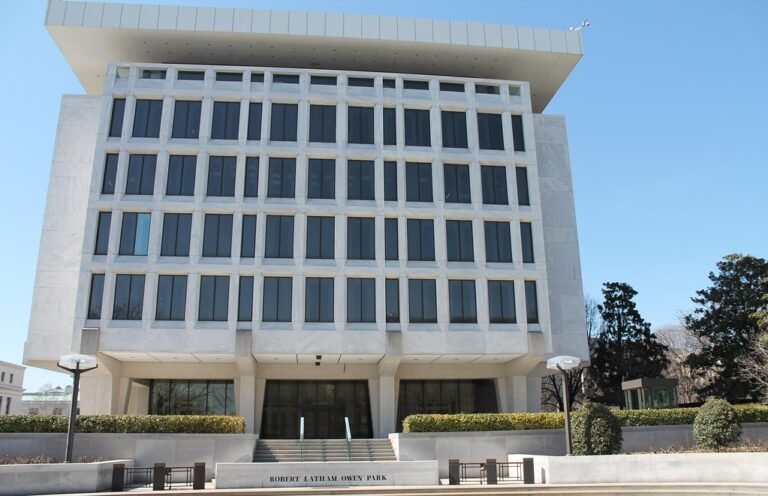
Maryland – A federal jury in Maryland convicted two former biotech executives for their roles in a scheme to mislead investors and artificially inflate the stock price of CytoDyn Inc., a publicly traded biotechnology company based in Vancouver, Washington. Nader Pourhassan, 61, and Kazem Kazempour, 71, were convicted on multiple charges of securities fraud, wire fraud, and insider trading in a case involving false claims about CytoDyn’s investigational drug for HIV and COVID-19 treatment.
According to court documents and evidence presented during the trial, Pourhassan, the former CEO of CytoDyn, and Kazempour, the former CEO of Amarex Clinical Research LLC (the company hired to conduct CytoDyn’s clinical trials), engaged in a deliberate effort to deceive investors. The two men misrepresented the status of CytoDyn’s drug submissions to the U.S. Food and Drug Administration (FDA) in order to maintain high stock prices and attract new investors, ultimately enriching themselves while causing significant financial harm to the public.
Between 2018 and 2021, CytoDyn sought FDA approval for its drug, leronlimab, to treat HIV and later COVID-19. However, Pourhassan and Kazempour knowingly made false statements about the drug’s progress and the likelihood of FDA approval. In spring 2020, the pair falsely claimed that the drug had been submitted for approval to treat HIV, despite the application being incomplete and not ready for review by the FDA. Following this misleading announcement, Pourhassan sold more than 4.8 million shares of CytoDyn stock.
The duo also misrepresented the status of CytoDyn’s clinical trials for COVID-19, claiming the drug was a promising treatment, despite the fact that the clinical studies had failed, and the FDA had serious concerns about the submitted data. During the scheme, CytoDyn raised approximately $300 million from investors, with Pourhassan and Kazempour diverting substantial amounts of money for their personal benefit. Pourhassan earned $4.4 million from stock sales, while Kazempour received over $340,000.
The Justice Department, along with the FBI, FDA, and U.S. Postal Inspection Service, expressed strong condemnation of the actions taken by the two executives.
“These convictions highlight the serious consequences of defrauding investors and manipulating stock prices,” said FBI Assistant Director Chad Yarbrough. “We will continue to pursue those who put personal profit above public trust.”
Principal Deputy Assistant Attorney General Nicole M. Argentieri of the Justice Department’s Criminal Division emphasized the broader implications of the case, particularly during the height of the COVID-19 pandemic. “The defendants lied to investors and the public about a drug that purportedly treated HIV and COVID-19 to artificially inflate CytoDyn’s stock price,” she said. “The Justice Department is committed to holding corrupt executives accountable.”
Kazempour was convicted on one count of securities fraud and one count of wire fraud related to his submission of the incomplete application for FDA approval and his attempt to trade CytoDyn shares the following day. Pourhassan was convicted on four counts of securities fraud, two counts of wire fraud, and three counts of insider trading.
Both men face a maximum penalty of 20 years in prison for each count of securities fraud, wire fraud, and insider trading. A federal district court judge will determine their sentences after considering the U.S. Sentencing Guidelines and other statutory factors. The sentencing dates for both defendants have not yet been set.
This case underscores the ongoing commitment of federal law enforcement to protect investors from fraudulent schemes, especially those that exploit public health crises for personal gain.
CytoDyn Inc. is a biotechnology firm currently in the clinical stage, dedicated to the advancement and commercialization of leronlimab. This investigational humanized IgG4 monoclonal antibody (mAb) is engineered to attach to the C-C chemokine receptor type 5 (CCR5), a protein found on the surface of specific immune cells. The company has explored the potential of leronlimab across various therapeutic fields, including infectious diseases, cancer treatment, and autoimmune disorders. Clinical trials have been conducted to assess leronlimab’s effectiveness as a viral entry inhibitor for human immunodeficiency virus (HIV), where it is thought to competitively bind to the N-terminus and the second extracellular loop of the CCR5 receptor. In the realm of immunology, the CCR5 receptor is believed to play a role in immune-mediated conditions like Metabolic dysfunction-associated steatohepatitis. Additionally, CytoDyn has entered into a collaborative development agreement with a generative artificial intelligence (AI) drug discovery company to create one or more long-acting therapeutic molecules.


